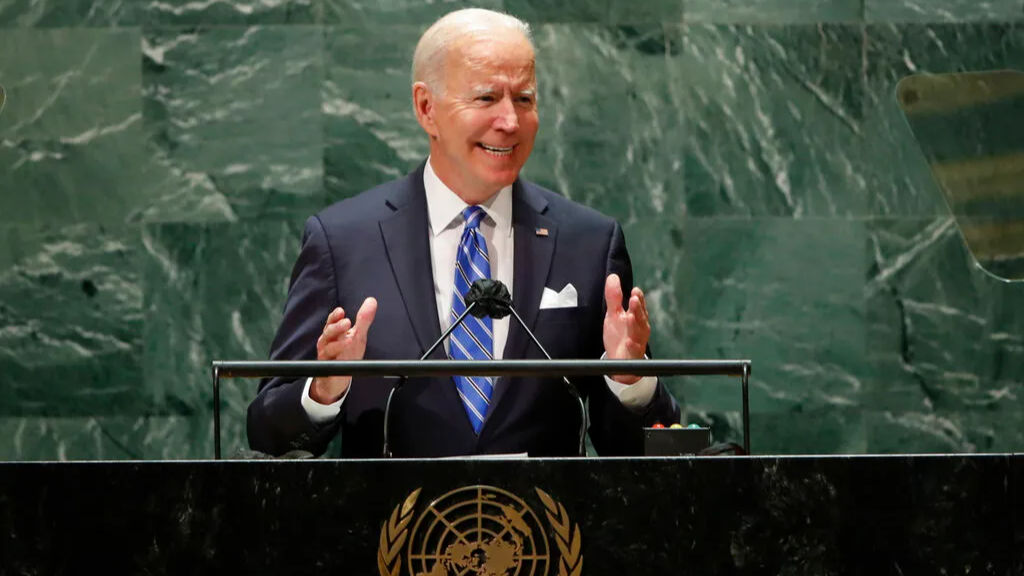US President Joe Biden, on Tuesday, delivered his first speech before the UN General Assembly. In his speech, Biden declared that the world stands at an “inflection point in history”. The world must move quickly and cooperatively to address the festering issues of the COVID-19 pandemic, climate change and human rights abuse.
Biden, speaking about the growing tensions with China, said that the US is “not seeking a new Cold War.”
Without mentioning China directly, Biden acknowledged increasing concerns about rising tensions between the two nations. But he said, “We are not seeking a new Cold War or a world divided into rigid blocs.”
UN Secretary-General Antonio Guterres in an interview with the Associated Press said that he was concerned about the “completely dysfunctional” US-China relationship and that it could lead to a new cold war.
White House Jen Psaki said the administration disagreed with the assessment, adding that the US-China relationship was “one not of conflict but of competition.”
The secretary-general did not back off his concerns about the US-China tensions as he addressed leaders at the opening of Tuesday’s gathering.
“It will be impossible to address dramatic economic and development challenges, while the world’s two largest economies are at odds with each other,” the UN secretary-general said.
In his speech, Biden also said that US seeks to completely denuclearise the Korean Peninsula through diplomacy.
“Similarly, we seek serious and sustained diplomacy to pursue the complete denuclearisation of the Korean Peninsula,” Biden said.
“We seek concrete progress toward an available plan with tangible commitments that would increase stability on the peninsula and in the region, as well as improve the lives of the people in the Democratic People’s Republic of Korea (DPRK),” he added, referring to North Korea by its official name.
North Korea has stayed away from denuclearisation talks with the US since early 2019.
Meanwhile, talking about US’ withdrawal from Afghanistan, ending America’s longest war last month, Biden set the table for his administration to shift US attention to intensive diplomacy with no shortage of crises facing the globe.
He said he is driven by a belief that “to deliver for our own people, we must also engage deeply with the rest of the world.”
“We’ve ended 20 years of conflict in Afghanistan. And as we close this period of relentless war, we’re opening a new era of relentless diplomacy of using the power of our development aid to invest in new ways of lifting people up around the world.”






